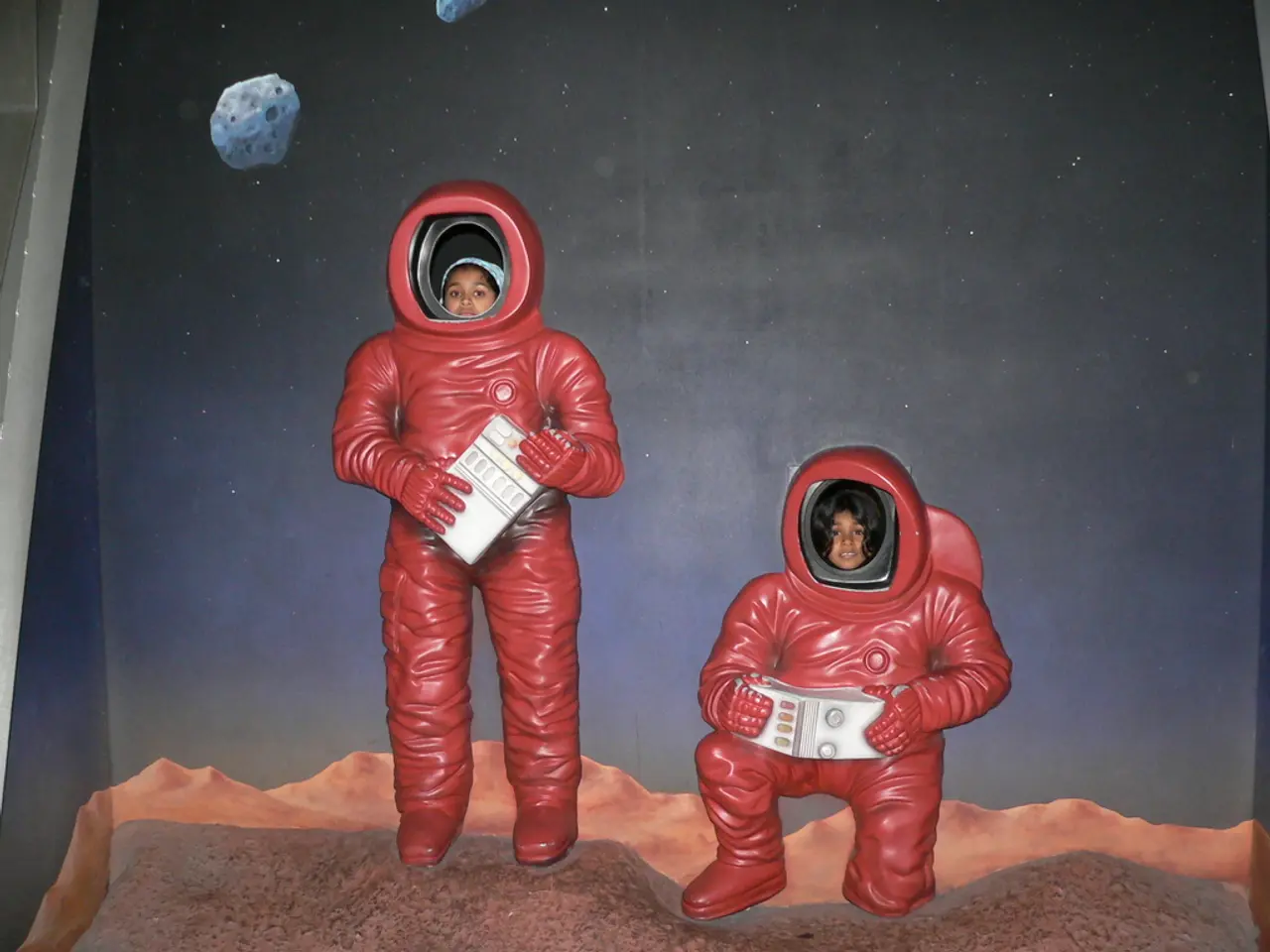Human Survival and Galactic Settlement Through Space Travel and Colonization
In a bold new chapter for humanity, the focus on space exploration is shifting from mere curiosity to the pursuit of long-term sustainability on other celestial bodies. The drive to establish self-sufficient colonies on the Moon and Mars is gaining momentum, with significant advancements in technology and research.
Projects like SpaceX's Starship aim to transport humans to Mars and establish multi-million-person colonies that can produce food, water, and energy. Central to this vision is the development of reusable spacecraft, such as the Starship, which could facilitate regular travel between Earth and Mars. Meanwhile, NASA's Artemis program is working towards returning humans to the lunar surface, with the goal of landing the first woman and establishing a sustainable presence on the Moon by the late 2020s.
These ambitious projects, however, come with their own set of challenges. Living in space for extended periods can have severe health implications, with exposure to microgravity leading to muscle atrophy, bone density loss, and cardiovascular changes. Increased radiation exposure beyond Earth's magnetosphere also raises concerns about cancer and acute radiation sickness risks.
Researchers are addressing these issues by developing countermeasures such as improved space suits, enhanced shielding in habitats, pharmaceutical interventions, and exercise protocols. Studying astronaut health on the ISS and planned lunar missions provides critical data to refine these strategies, ensuring human crews can remain healthy during multi-year interplanetary missions.
The ethical implications of space colonization are also under scrutiny. The potential for contaminating extraterrestrial ecosystems, the responsible use of extraterrestrial resources, and the rights of future space settlers are among the questions being debated. As public opinion gradually shifts towards the feasibility of human presence on Mars or the Moon within the next few decades, discussions on governing principles for space colonization are becoming increasingly important.
Advancements in technology are crucial for successful space colonization. Innovations in life support systems, 3D printing technology, and robotics and automation will play significant roles. For instance, closed-loop life support systems can recycle air and water, mimicking Earth's ecosystems, while 3D printing technology can construct habitats using local materials. Robotics and automation will also enhance efficiency in building infrastructure on other planets and minimize risks associated with human labor in hostile environments.
The Artemis Accords, an international agreement, exemplify efforts aimed at promoting peaceful exploration of the Moon and beyond while establishing guidelines for resource management and environmental protection. By the late 21st century, we may see permanent human settlements on the Moon and Mars, transforming our relationship with space and potentially having far-reaching impacts on Earth and human society.
However, the extreme conditions of space pose significant health risks for life forms, including exposure to harmful ionizing radiation, muscle and bone atrophy, and psychological challenges caused by isolation and confinement. Addressing the combined impact of radiation exposure, microgravity, and isolation is critical for ensuring the success of long-duration space missions.
The psychological toll of living in confined spaces far from Earth cannot be overlooked. Mission planners are prioritizing psychological resilience in crew selection and implementing support systems. Dietary supplements and exercise regimens are being designed to maintain physical health during extended missions.
As we embark on this exciting journey, it is essential to remember that space colonization offers unprecedented opportunities for resource extraction, with prospects like asteroid mining that could alleviate pressures on Earth's dwindling resources. Yet, it also raises important ethical questions regarding our responsibilities towards potential extraterrestrial ecosystems and life forms.
In conclusion, the future of human space colonization is filled with promise and challenges. With ongoing advancements in technology and research, we are one step closer to establishing sustainable habitats on the Moon and Mars, ensuring humanity's long-term survival and expanding our reach beyond Earth.
- In the pursuit of long-term sustainability on celestial bodies, researchers are developing countermeasures for the health impacts of living in space, such as improved space suits and exercise protocols, to ensure astronauts can remain healthy during multi-year interplanetary missions.
- As human presence on Mars or the Moon approaches, advancements in technology are crucial for successful space colonization, with innovations in life support systems, 3D printing technology, and robotics and automation playing significant roles in establishing permanent settlements.
- The ethical implications of space colonization are under scrutiny, and discussions on governing principles for space colonization are becoming increasingly important, including the potential for contaminating extraterrestrial ecosystems, the responsible use of extraterrestrial resources, and the rights of future space settlers.




